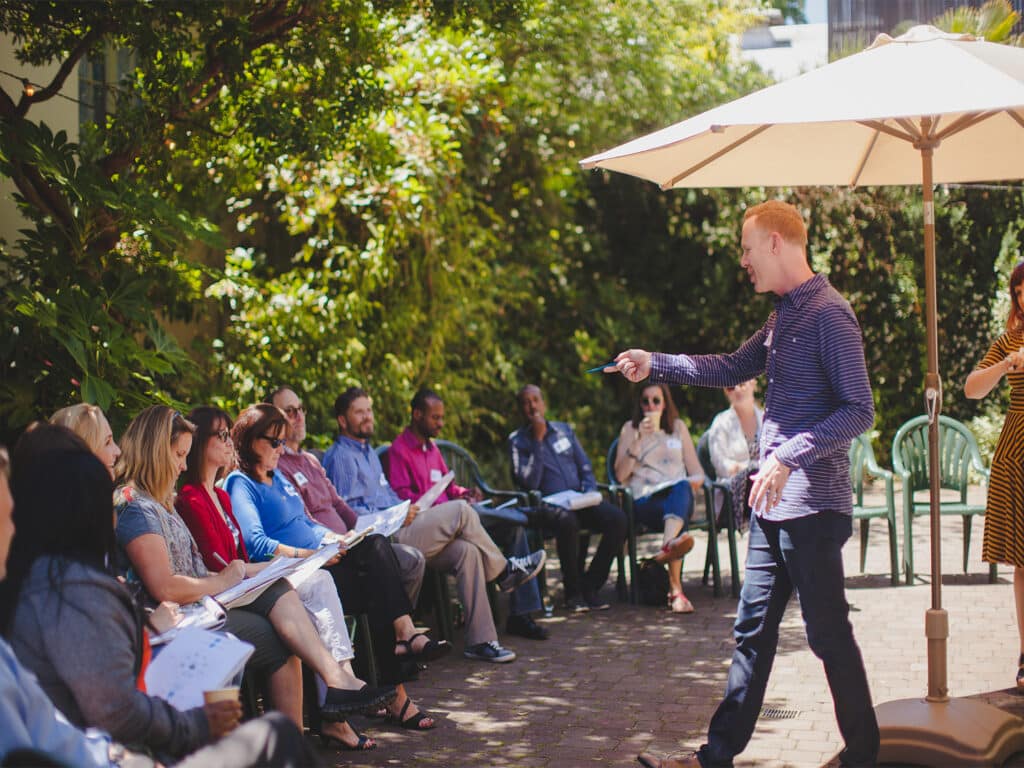
Why Student Resilience Matters
Students learn, fail, and experience immense growth throughout their education years, adding to the academic stress that comes with schooling. School accounts for approximately fifteen percent of a person’s life and provides the foundation for people to understand their place in the world.
Despite the impact of school on a child’s development, much of our education systems are based on developed foundational skills in subjects like literature, math, and science. This creates an educational gap as school is also an excellent opportunity to develop socio-emotional skills, such as building resilience.
Resilience is the process of adapting in the face of adversity, tragedy, threats, or significant sources of stress. Students go through constant periods of change in their lives, such as growing into their bodies, moving onto a new grade, or social stress from a new environment. The development of student resilience can be a game-changer in empowering them to unlock their full potential.
Benefits of Resilience
Studies have supported the value of resilience for reducing stress, risk of depression, and increasing longevity. It’s a powerful tool that positively impacts physical health, mental health, and overall well-being.
Improves Well-Being
A protective factor of resilience is social relationships. What makes these relationships a protective factor is that they are positive and healthy. Supportive relationships create a sense of community and provide someone to lean on in difficult situations. This support network can help students cope with school challenges and prepare them for the uncertainties of college.
Resilient people live longer lives. In 2010, the Chinese Longitudinal Healthy Longevity Survey concluded that people within the age range of 90-100 who scored higher on measures of resilience by 43.1% had a better likelihood of living over the age of 100 compared to those in the same age range who scored lower on resilience. Building resilience strategies into school curriculum is a simple way to ensure that students are consciously developing this muscle.
Bounce Back Faster
Resilience affects our ability to bounce back from challenging situations faster. There will be no shortage of stressful situations in our lives, but it’s how we deal with these challenges that impact our future.
Less resilient people tend to blame external factors for their outcomes in life. They often fall into negative emotional patterns and ruminate on their negative thoughts rather than take action. This framework of thinking is wasteful and passive, which can result in unhealthy life choices.
Resilient people assess the situations they face and actively find ways to overcome their challenges. Building an awareness of your stressors, their triggers, and how to navigate them will bolster your resilience and help you focus on productive action. There’s so much power in developing strategies for dealing with everyday and large-impact challenges.
Education and Resilience
A White Paper created by the U.S. Agency for International Development highlights the importance of creating resilient educational systems and educators. Resilient systems support inclusive environments, empower the next generation of leaders, and ensure flexibility in challenging times.
Resilience in educators and school systems set students up for success. Schools, universities, and organizations that support education must create systems that ensure quality, equitable, and accessible learning despite the environment students find themselves in outside of the classroom. Resilient schools and school systems increase students’ social mobility, expand their social network, and promote their active participation in society.
In a recent study, Cunningham and Villasenor stated, “Primary and secondary education is a critical place for building and strengthening children’s social-emotional competencies, such as self-awareness, self-management, social awareness, relationships, and responsible decision-making, all of which are critical for effective workforce participation, and in forging effective social networks in times of adversity.”
The education students receive in their early years will set the foundation for how they deal with stressful situations in the future. However, resilience has to begin at the root, with its effects rippling throughout the organization. Ideally, it should touch every aspect of the institution, especially its students. This entails schools having additional resources, creating connections with like-minded organizations, and training its educators to build their personal resilience.
Teaching Resilience
The beauty of resilience is that it can be taught, built, and encouraged. Here are a few ways you can teach resilience:
Role-model Coping
Anyone who serves as a role model for a student should model healthy coping skills for the young adults to adopt. Whether you’re a teacher, advisor, tutor or staff, remember that students are sponges. They absorb the world around them, and as a role model, you have a responsibility to show up in ways that are conducive to their development.
Create Community
Resilience requires strong, healthy support systems to function effectively. Your school should be fostering an environment where students feel safe and supported. Make it known that there are resources for them if they need help and people other than their teachers or parents to turn to in challenging times.
University of Minnesota psychologist Ann S. Masten, PhD, who has studied resilience for 40 years says, ”The resilience of an individual depends on drawing resources from many other systems.”
Deepening relationships with your students, displaying empathy, and truly listening are important social factors that can foster individual resilience.
Acknowledge Feelings
Stressful events can cause sadness, disappointment, and frustration. Encouraging students to talk about these feelings is a critical way to help them build resilience. It has become normal to say things like, “It’s alright” or, “It’ll pass.”
Normalize talking about how situations make you feel. Students should be able to recognize their feelings so they know how to navigate the emotions as they arise. This increases self-awareness and provides a foundational step toward developing a resilient mindset.
Self-awareness gives us insight into our strengths and weaknesses, which helps us better understand our blind spots and the lenses we use to see the world. A heightened sense of self-awareness builds resilience because we have a better understanding of how we cope with challenges, giving more insight into how we should equip ourselves to handle future threats.
Encourage Reflection
When you experience a challenging situation, it’s easy to focus on the negative. Your mind can become clouded with the stress and anxiety of overcoming the situation and emotions associated with fighting through the adversity. However, it’s important to remind students to reflect on what they learned from their experiences. Every experience is a lesson, and students will become better people for seeing the value in these challenges.
Challenge your students to reframe their thinking from the negative emotion that came from the experience to look at what they’ve gained from that situation instead.
Teachers should leverage resilience education in the classroom. Classes like Biology and Algebra are just preparing students for a fraction of what they’ll encounter in the world. Student well-being and success can be fostered in an environment that encourages the development of socio-emotional skills. The use of these methodologies will prepare your students for stressful situations, interacting with different personalities, and support their personal growth. If you’re interested in learning the tools necessary to prioritize socio-emotional development in your students, check out Academic Life Coaching. The concepts learned in Academic Life Coaching can help you foster a classroom culture of resilience and develop resilient students.




